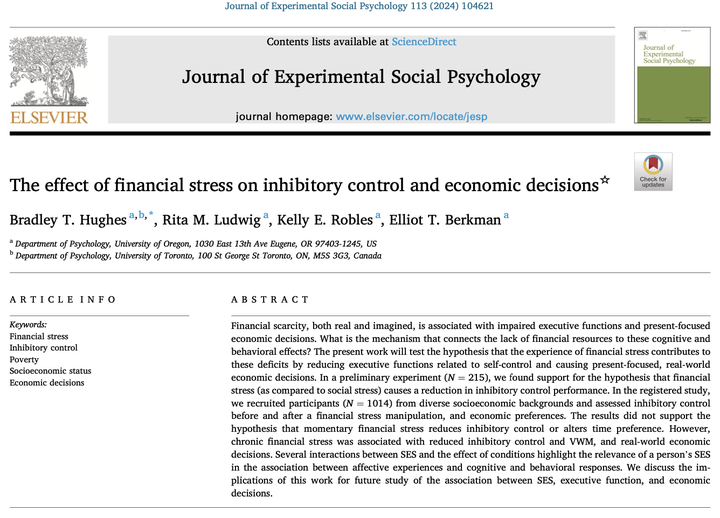The Effect of Financial Stress on Inhibitory Control and Economic Decisions

Abstract
Financial scarcity, both real and imagined, is associated with impaired executive functions and present-focused economic decisions. What is the mechanism that connects the lack of financial resources to these cognitive and behavioral effects? The present work will test the hypothesis that the experience of financial stress contributes to these deficits by reducing executive functions related to self-control and causing present-focused, real-world economic decisions. In a preliminary experiment (N = 215), we found support for the hypothesis that financial stress (as compared to social stress) causes a reduction in inhibitory control performance. In the registered study, we recruited participants (N = 1014) from diverse socioeconomic backgrounds and assessed inhibitory control before and after a financial stress manipulation, and economic preferences. The results did not support the hypothesis that momentary financial stress reduces inhibitory control or alters time preference. However, chronic financial stress was associated with reduced inhibitory control and VWM, and real-world economic decisions. Several interactions between SES and the effect of conditions highlight the relevance of a person’s SES in the association between affective experiences and cognitive and behavioral responses. We discuss the implications of this work for future study of the association between SES, executive function, and economic decisions.